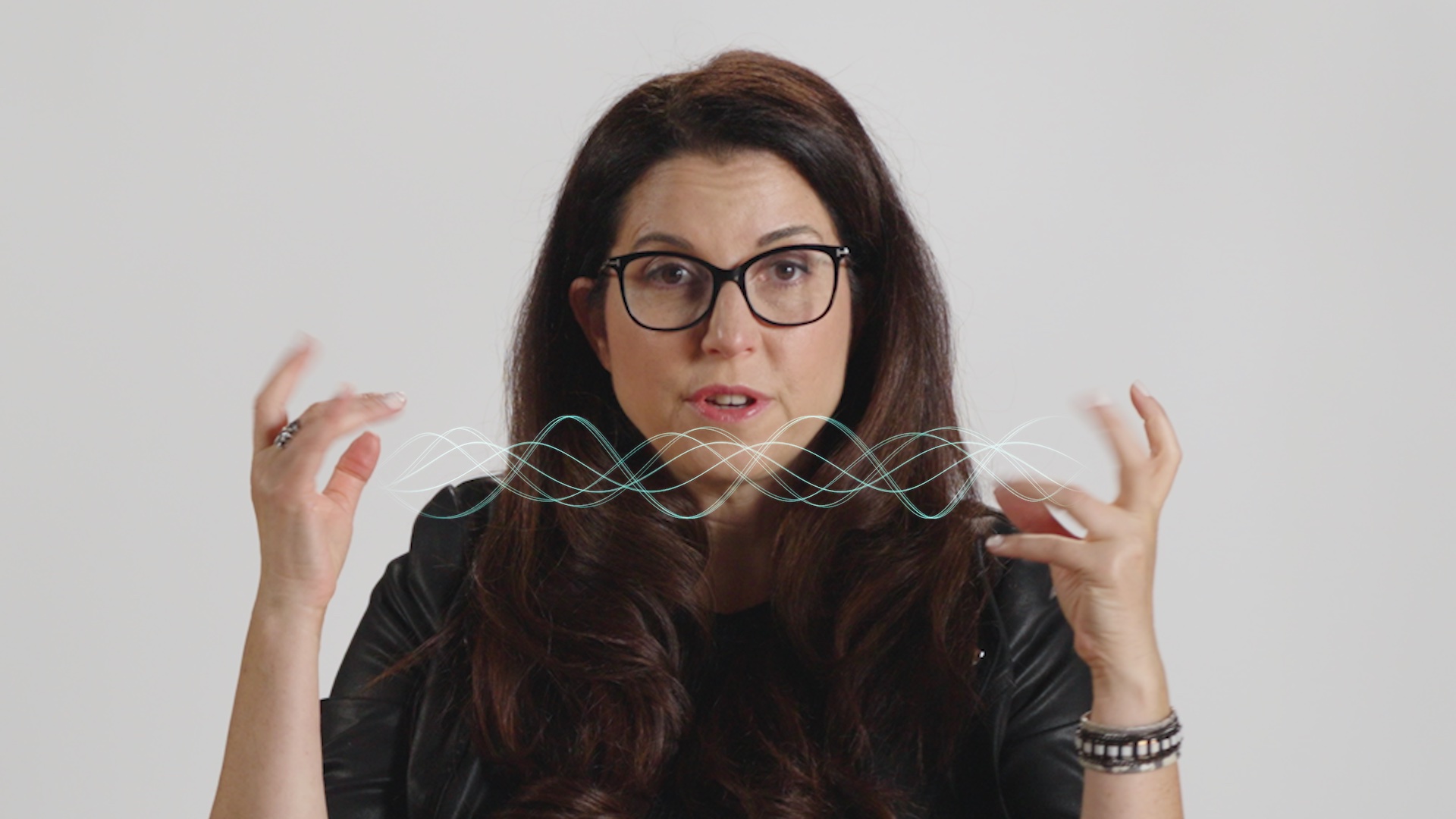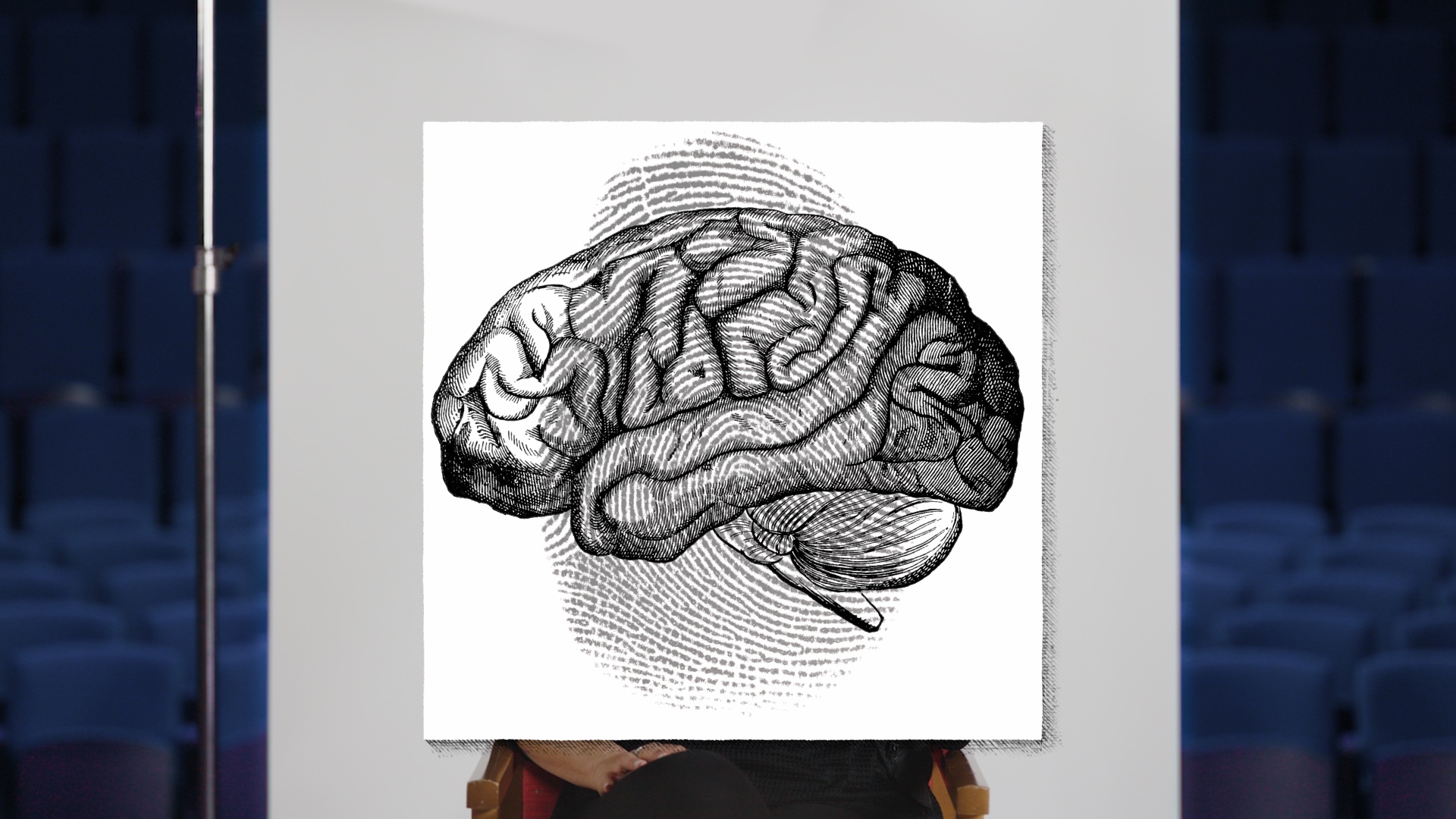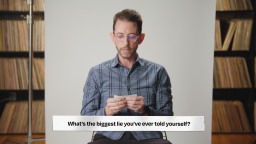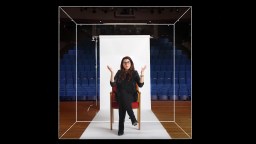Have you ever told a story to your friends, and someone who was there interrupts you to say that’s not how it happened? Annoying, right? Chances are they’re not just being rude, they have genuinely perceived the events differently.
“We’re all living inside of our own perception box,” explains Dr. Heather Berlin, neuroscientist, clinical psychologist, and Associate Clinical Professor of Psychiatry and Neuroscience at the Icahn School of Medicine at Mount Sinai, New York. “Physically speaking, each brain is unique. It’s slightly different, and it’s shaped throughout our lives based on our experiences. Only you know your own first-person subjective experience. I will never know it. And although we might have similarities, there’s these differences that create our own box that we perceive the world through.”
Blending her experience in neurology with cognitive behavioral therapies and mindfulness, here she explains in more detail how our brains create these one-of-a-kind viewpoints over time, as well as how we can rewire and shape them for the better.

Your emotions manipulate your experiences
How we feel has a substantial influence on the cognitive process, including memory-making, reasoning, problem-solving and perception. “What you’re conscious of at any moment can affect what you perceive,” reveals Heather. “If you’re in a negative headspace, you’re going to start perceiving more negative things in your environment. If you’re in a positive headspace, you’re going to perceive more positive things, even though the environment may be exactly the same.”
Even the slightest hint of melancholia can adjust your perception detrimentally. For example, one scientific study showed that people who listened to sad music thought hills were actually steeper than they were. But the heart doesn’t always have to rule over the mind. You just need to be aware of the power your emotions hold before heading off to a major life event full to the brim with rage. “You can choose to attend to positive thoughts and have them grow within you rather than focusing your attention on negative thoughts,” says Heather, who received her doctorate in neuroscience from the University of Oxford, Master of Public Health from Harvard University, and Masters in Psychology from the New School for Social Research. “Being mindful is your brain controlling what you’re attending to and also controlling what you’re taking in, as well as how you’re reacting to the world.”

Your brain can only process so much
Although our brains are capable of processing vast amounts of information (the average person can process as much as 74 gigabytes of data a day), it is simply impossible to absorb and store every single bit that’s thrown our way. It would just be too overwhelming to remember every last detail, especially when a lot of it is unnecessary. The downside to our brain giving us a break, though, is missing out on key chunks from this onslaught of information, which in turn can establish biases based on patterns we’ve seen in the past.
“It’s easier to categorize things, so we develop these schemas,” explains Heather. “But the problem is that even though, on average, something might be true, it doesn’t mean that it’s true for every case. Let’s say a bias is that women were homemakers and men were more likely to be in the workplace. If you then saw a picture of a woman and a man and were asked which one is working in the office, you would be more likely to say the man because of prior expectations.”
Not all schemas are bad, as they can help us understand how to operate in social situations and what behaviors to expect from certain people. But when subjected to negative ones over time, we can unconsciously turn them into a negative bias.
“There needs to be a balance between having a schema that helps us perceive things in the world and not making over assumptions,” says Heather. “I notice a lot of modern commercials for laundry detergent where the man is at home doing the housework, which I love because that is reprogramming the brain to counteract biases. If we can figure out ways to expand this box that we’re living in, then we are better able to connect with other perspectives.”
Your brain has the ability to adapt and overcome
None of us are trapped in our ways of thinking. However extreme a perception may be, there’s always a way to reset our thoughts for the better. “We’re all a work in progress until our very last breath and there’s always room for change,” explains Heather, whose therapy sessions for anxiety, obsessive-compulsive disorder, and impulse control disorders explore dynamic unconscious processes, and focus on helping people reach their full potential through deep exploration of their thoughts, emotions, and behaviors. “I’ve had people come to therapy in their 70s for the first time because they say they’ve been depressed their whole lives and don’t want to die without having experienced joy.”
Sadly, negative life events influence your perceptions more than the positive ones. But understanding, accepting and owning that negativity is all part of changing your point of view. “Life is full of pain and that’s part of the journey,” she says. “But being able to contextualize that and weave it into your narrative is something we can all do. Knowing that our perception and sense of self is an illusion, in the sense that it’s a construct of our brain, gives us an opportunity to have some control over how our brain perceives the world. That’s where the power lies.”
We spoke to Heather Berlin for The Science of Perception Box, a Big Think interview series created in partnership with Unlikely Collaborators. As a creative non-profit organization, they’re on a mission to help people challenge their perceptions and expand their thinking. This series dives into the science behind our thought patterns. Watch Berlin’s full interview above, and visit Perception Box to see more in this series.
Words: Jamie Carson
HEATHER BERLIN: So we're all living inside of our own perception box, it's dark in there. It doesn't actually see or hear anything. It's just a series of signals. And each brain, you can think of it like a thumbprint, is unique, is slightly different, and it's shaped throughout our lives based on our experiences.
Our perceptions are basically formed from a combination of what we expect. So that's coming internally from our past experiences and then what's coming into our brain externally. And when those two things meet, it creates this perception, which is what we actually experience. But everyone's perception is unique and we can never know what it would feel like to be you, for example, only you know your own first-person subjective experience.
I've always been fascinated about the relationship between the physical brain and the mind. My big question was trying to understand the neural basis of our conscious perception. Everything we experience from the moment we wake up to when we go back into a deep, dreamless sleep. How does the brain create the subjective experience that we have? Our feelings, our thoughts, emotions? Our mind are shaped by our prior experience.
So as these neurons start forming connections, and as you go through life and have experiences, it's a pruning process. It's actually strengthening the important connections and allowing the other unimportant connections to kind of wither away. And then you start to develop a more defined structure.
Our perception of the world around us is a construct of the mind, an illusion. The sense that it's created by the mind. But there are things that actually exist out there in the world, but we're just not actually seeing all of it.
So if you think of attention, it's like a spotlight. And so you can focus that spotlight anywhere in the visual field, let's say, or even auditory, right? You can think of a cocktail party, you can tune in to some conversation over there and not be listening to what's right in front of you. So things could be happening right in front of your face. But if your spotlight of attention is not there, your brain might be processing it in some way, but you're not consciously aware of it. You become aware of it when it becomes important.
There's this constant interplay between things that our brain processes unconsciously that informs our behavior. So what you're conscious of at any moment can affect what you perceive and what you remember as well. So if you're in a negative headspace, you're going to start perceiving more negative things in your environment. If you're in a positive headspace, you're going to perceive more positive things, even though the environment may be exactly the same.
You can choose where you would tend to internally. You can choose to attend to positive thoughts, have them grow within you rather than focusing your attention on negative thoughts. So being mindful is your brain controlling what you're attending to and also controlling what you're taking in and how you're reacting to the world.
In general, there's so much information coming at our brains throughout the day. If we had to consciously process all of it, it would be overwhelming. It's easier to sort of categorize things. It's easier to perceive things not just at a basic level, but scales up to these higher cognitive levels to belief systems. And so we developed these schemas. But the problem is that even though on average something might be true, it doesn't mean that it's true for every case.
Let's say a bias is that women were homemakers and the men were more in the workforce. If they saw a picture of a man and a woman and you'd say, okay, which one is working in the office? People would more likely say the man because of prior expectations.
So there's this balance between having a schema that helps us perceive things in the world and our expectations, and then also not making these over assumptions. Cognitive biases can be adaptive up to a certain point, so if you change the inputs enough over time, you change those unconscious biases.
I notice a lot of commercials for laundry detergent stuff. It's like the man at home during the housework, you know, which I love because that is reprogramming the brain to kind of counteract those biases.
If we can figure out ways to either expand this box that we're living within, we are better able to connect with other perspectives. The more you can understand and also knowing that you live within a certain kind of perceptual box can create potentially the impetus for you to develop or try to work on developing more empathy for others who are living inside their own perception boxes.
We're all a work in progress until our very last breath, and there's always room for change. Nothing is set in stone. I've had people come to therapy in their seventies for the first time because they say, you know, I've been depressed my whole life and I don't want to die without having experienced joy and happiness. If you change your perspective, it changes how you experience the world. And life is full of pain. That's part of the journey. But being able to contextualize that and weave it into your life narrative is something we can all do.
So knowing that our perception is an illusion, our sense of self is an illusion. All of it is illusion in the sense that it's a construct of our brain. Our brain is creating this for us. And given that, that's an opportunity because we can have some control over how our brain perceives the world, and that's where the power lies.






